Drug dealer in exchange for a drug cop
In December 2022, arms dealer Viktor Bout was exchanged for American basketball player Brittney Griner, who was convicted in Russia for drug smuggling. The merchant of death, as the media dubbed him, managed to serve 15 years in the United States. The multi-way special operation to arrest Bout was directly carried out by the US Department of Justice Drug Enforcement Administration (DEA), whose employees, posing as militants of the Colombian FARC group, were able to lure him out of Russia to Thailand. The weapons baron was still awaiting extradition to the United States, and the Kremlin was already feverishly looking for opportunities to release him or exchange him – apparently, they were very afraid that Bout would extradite high-ranking officials from Moscow and Minsk involved in the illegal arms trade to American investigators.
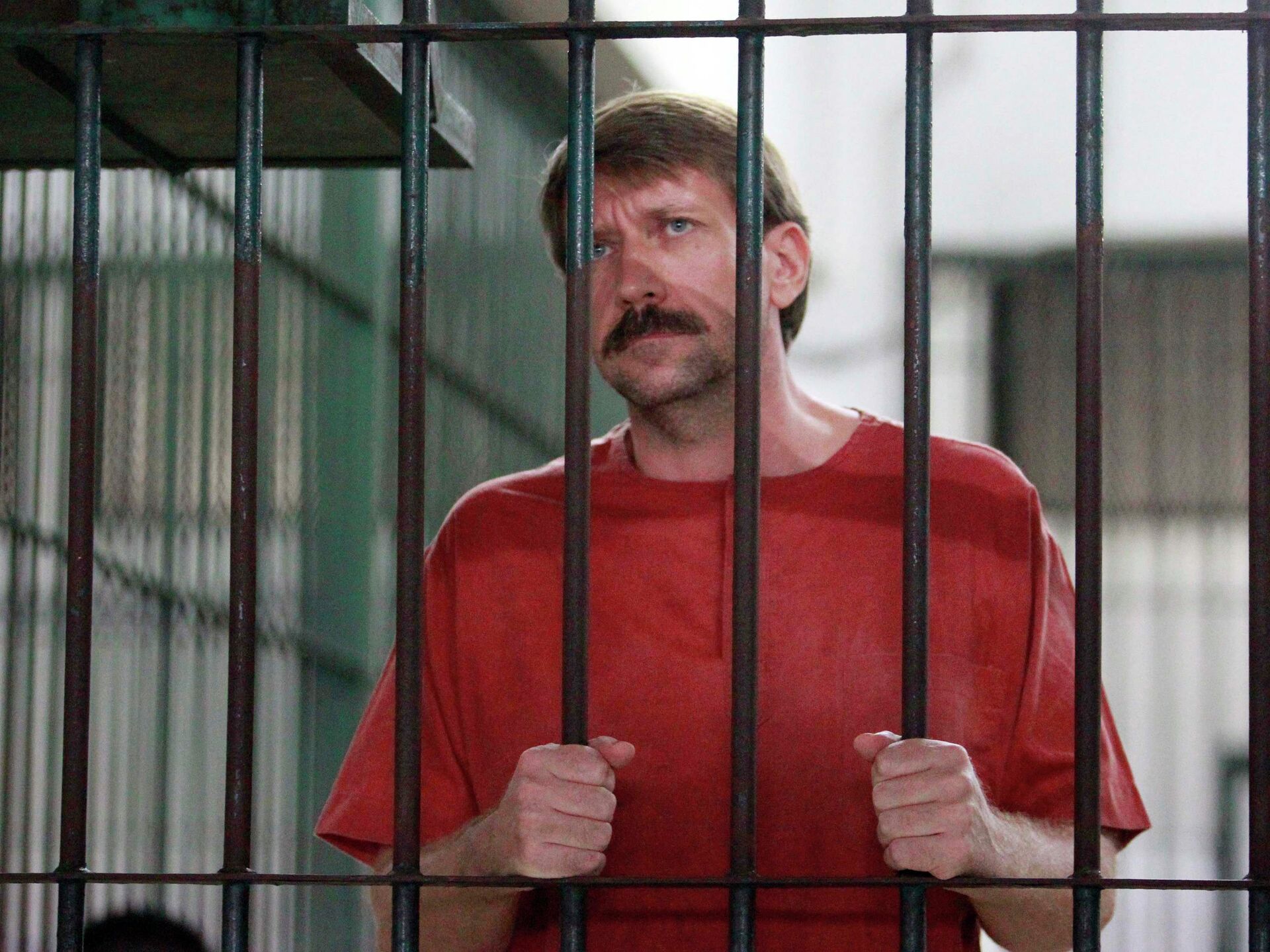
According to the secret documents of the FSB DKRO, which were at the disposal of The Insider, Kevin Nersesyan, an employee of the DEA representative office in Russia, was taken into operational development in Moscow while Bout was in a Bangkok prison. The Kremlin hoped to collect compromising evidence on the American drug fighter and exchange it for Bout after his arrest. From Nersesyan's telephone wiretaps, it turned out that he periodically communicates with the head of the 2nd department of the ORB No. 14 of the Criminal Investigation Department (DepUR) of the Ministry of Internal Affairs, Lieutenant Colonel Dmitry Abakumov and the head of the Department for organizing the activities of the Ministry of Internal Affairs in the fight against drugs, Colonel Sergei Tikhonenko.
The development of Nersesyan was entrusted to the then head of the FSB DKRO, Alexander Zhomov, and he connected the “toptuns” from the Operative Search Directorate (OPU) and Directorate “M”, which is supervised by the Ministry of Internal Affairs, the Ministry of Justice and the Federal Penitentiary Service. General Zhomov was called a master of operational combinations and "setups." So, in 1988, on the instructions of the KGB leadership, he contacted the CIA representative in Moscow, Jack Downing, and offered his services – and then for two years he fooled the Americans, slipping them a "linden". It was General Zhomov who exposed Alexander Zaporizhsky, deputy head of the SVR Foreign Counterintelligence Department, who received an 18-year prison sentence for working for the CIA. Subsequently, he was exchanged for Russian illegal immigrants who failed in the United States.
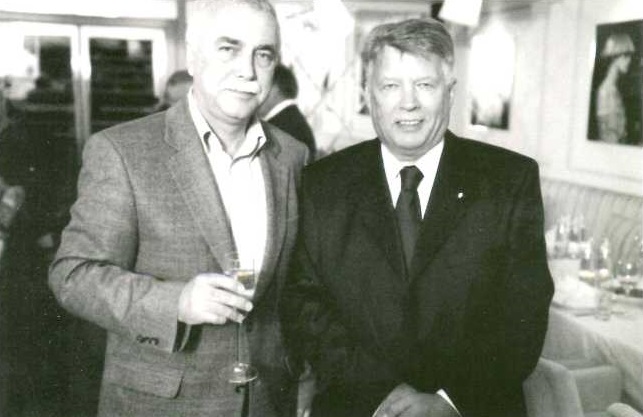
On Abakumov and Tikhonenko, who were in contact with Nersesyan, they opened cases of operational verification (DOP): Abakumov was given the operational pseudonym “Diplomat”, and Tikhonenko was passed as “Veselchak”. From the DOP of the Diplomat it followed that he was transmitting information to the American about large drug dealers in Russia and helping to “break through” cocaine suppliers from South America. Subsequently, wiretapping showed that the Diplomat supplied cocaine to colleagues from law enforcement agencies, and among them was the head of the Office for Combating Money Laundering of Rosfinmonitoring R. (data known to the editors). In addition, "stompers" from the FSB operative department spotted Abakumov entering the American embassy on the Independence Day of the United States.
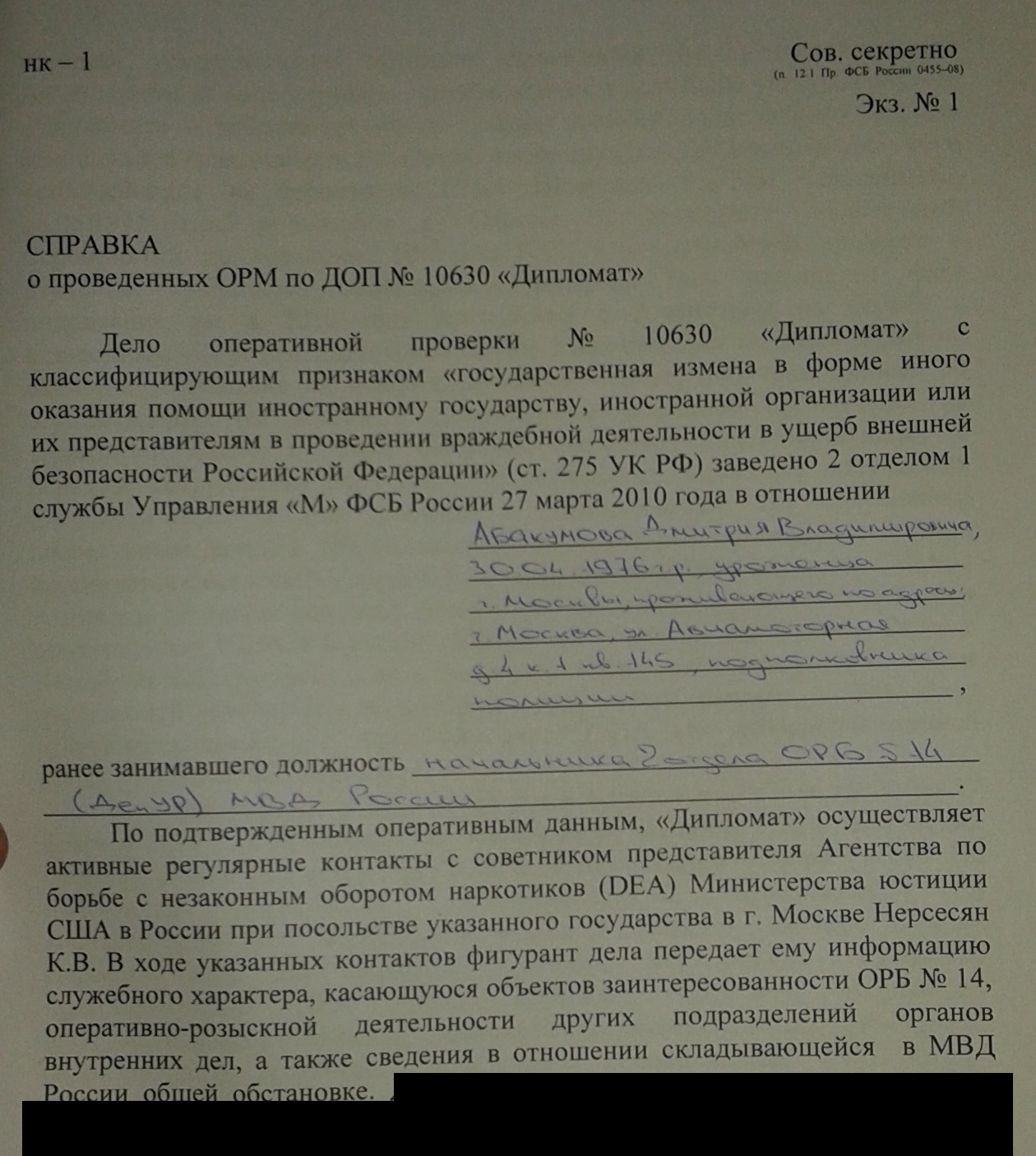
Observation of Veselchak also gave interesting results: “The figurant personally and by phone transmits to Nersesyan information of an official nature regarding the objects of operational interest of the Russian Ministry of Internal Affairs, ORM, as well as information about the general situation developing in the internal affairs bodies,” – reported in his report an operative from the Department "M" of the FSB.
According to the FSB, Veselchak used a bank card from the American bank Chase. The card itself was allegedly issued to an American businessman of Russian origin, Kyle (Kirill) Shostak. Businessman Shostak was born in Odessa, after moving to Moscow, he studied at the Faculty of Law of Moscow State University, then at the New York University Stern School of Business. In New York, he founded Navigator Principal Investors, an investment company operating in financial markets in Eastern Europe and South America.
As can be seen from secret reports, Shostak was already under the hood of the FSB. Here is a quote from the report of the Department "M" of the FSB:
“According to the operational data received about 10 years ago, Shostak K.S. was recruited by employees of the GUBNON SCM of the Ministry of Internal Affairs of Russia and was used to obtain information regarding the production and further deliveries of narcotic drugs from Latin American countries to the territory of the Russian Federation. During all this time, Shostak K.S. lived in the USA. A few years ago, Veselchak, through the mediation of Nersesyan, organized a meeting of Shostak K.S. with DEA officials of the US Department of Justice, with whom he allegedly signed a contract to assist the US government in the fight against drug trafficking. However, this information requires additional verification.
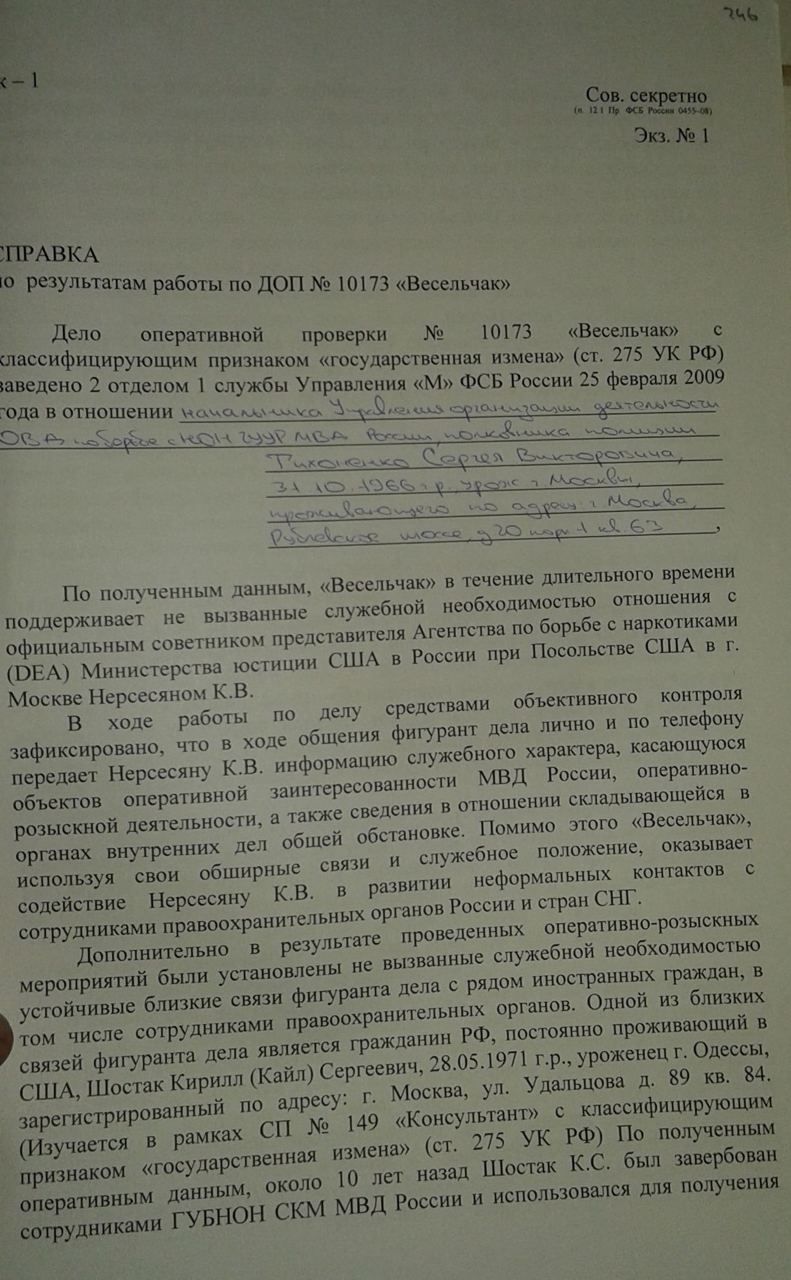
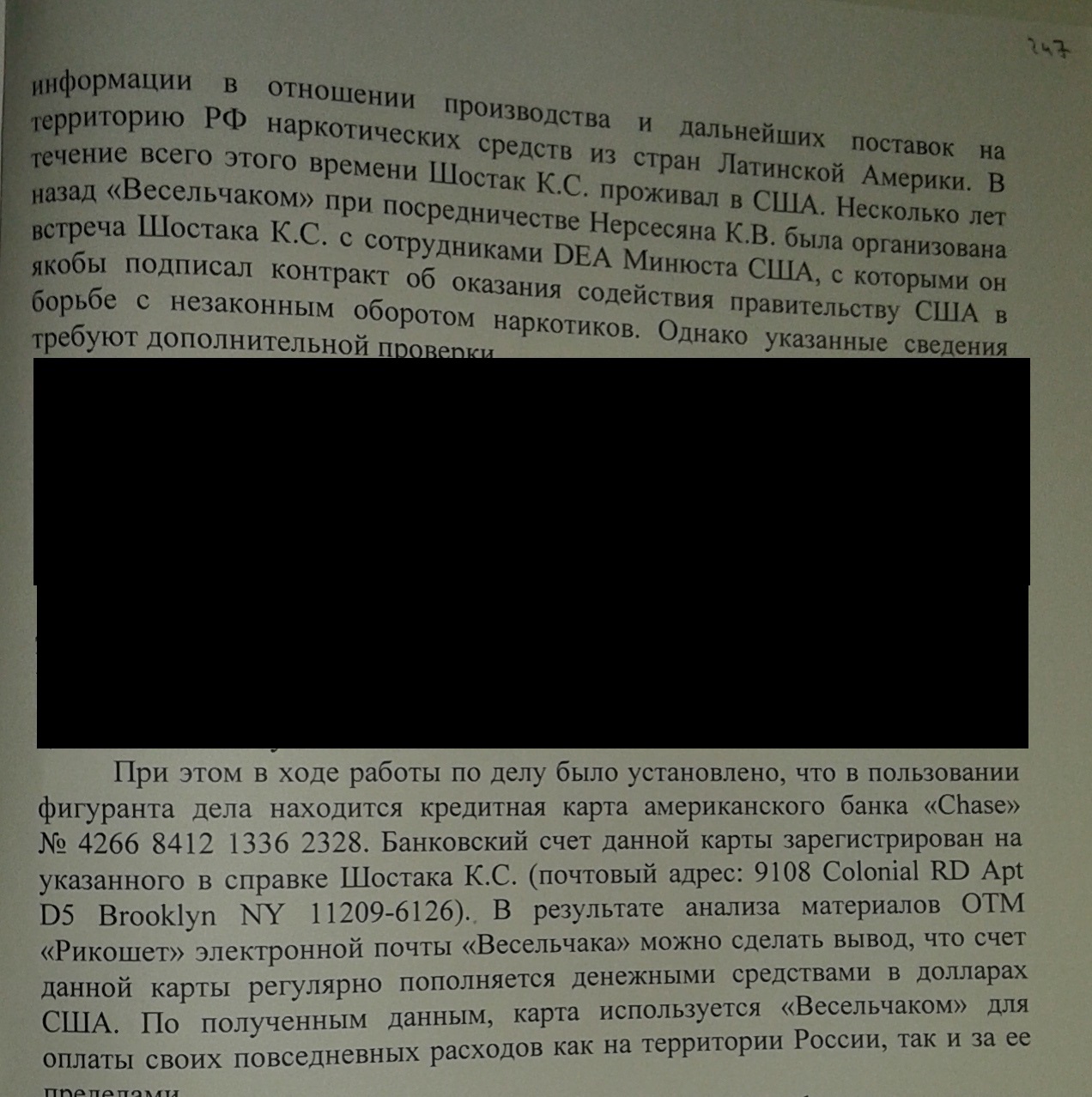
In 2018, the Moscow Arbitration Court declared Ajax Capital LLC, which was headed by Shostak, bankrupt. According to the arbitration materials , the businessman was withdrawing the company's assets and performing cross-border transactions with securities, which led to bankruptcy.
Despite this, Shostak is quite often invited as a commentator to the Russian state media and presented as a major American investor. So, in 2021, in an interview with TASS, he commented on the possible disconnection of Russian banks from SWIFT: “There is absolutely no financial rationality in such measures, there is only Russophobia and an attitude to punish.” And in another interview, Shostak frightened the West with a sharp increase in oil prices if a price ceiling was introduced for Russian oil products.
The Insider emailed Shostak questions, but he did not respond.
In the meantime, everything was ready for the detention of Nersesyan, an employee of the DEA representative office in Moscow, with his subsequent exchange for Bout. The American could be accused of espionage, and the police could be brought under the articles of the Criminal Code "high treason" and "taking a bribe." The Kremlin was already rubbing its hands, but then an unforeseen event occurred: the FBI arrested ten Russian illegal immigrants in the United States, who were betrayed by Alexander Poteev, a defector from the Foreign Intelligence Service. As a result, illegal immigrants who failed in the United States were exchanged for four Russian citizens serving prison terms for espionage, and Bout was brought to trial in the United States and received 15 years in prison.
After the exchange for basketball player Brittney Griner, Bout was used by state propaganda with might and main, calling him an innocent victim of American justice. In his interviews, he supported the Russian invasion of Ukraine, and the leader of the Liberal Democratic Party, Leonid Slutsky, solemnly handed him a party card.
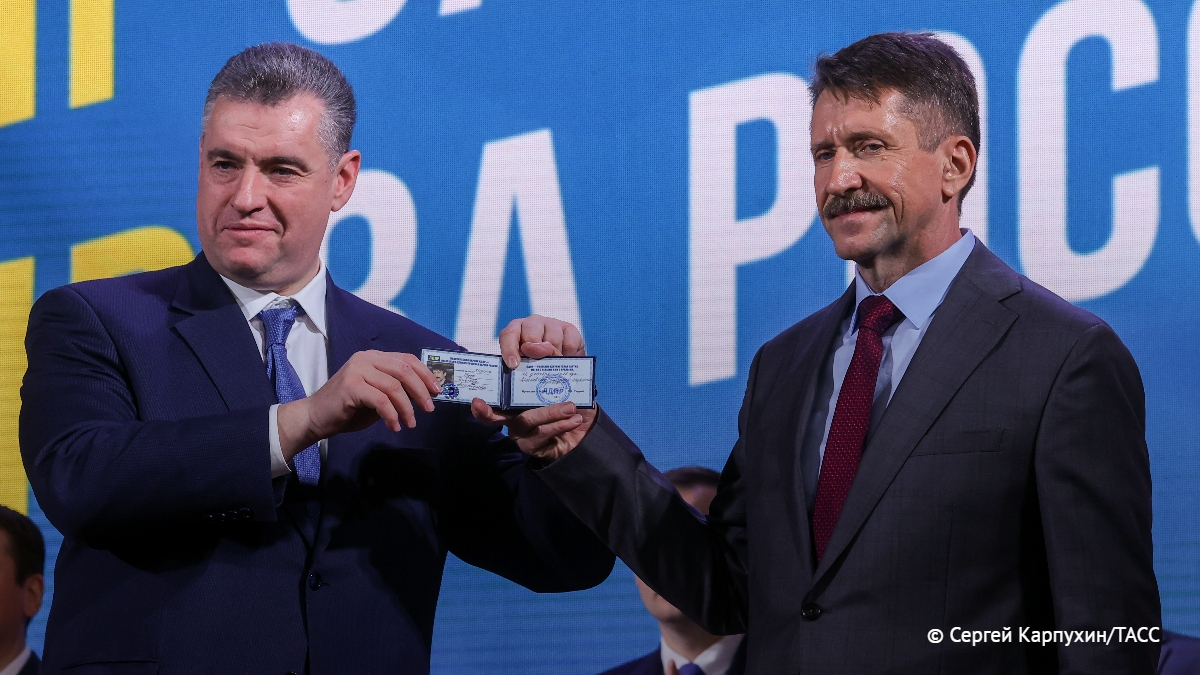
As The Insider found out, the drug fighter Nersesyan, having noticed the surveillance of the FSB, left Russia, and Diplomat and Veselchak were fired from the Ministry of Internal Affairs.
Spystone and the hunt for MI6
When it comes to real spies, security officers often end up with nothing, as the story of the "spy stone" showed.
It all started in 2006, when counterintelligence discovered two Wi-Fi receiving devices disguised as ordinary stones in two Moscow squares, with the help of which a Russian agent allegedly transmitted spy information to MI6. The British managed to take one stone, and the other was shown in the film Spies by Arkady Mamontov: “Counterintelligence officers constantly monitor the activity of foreign intelligence services in Russia. Four so-called British diplomats aroused particular interest among our operatives, ”propagandist Mamontov quoted the text edited at Lubyanka. As subsequent events showed, Mamontov's film became a signal to discredit non-governmental Russian organizations receiving foreign grants, although, of course, they could not have anything to do with stone and MI6.
In connection with this story, the KGB outdoor surveillance conducted round-the-clock surveillance of the second secretary of the British trade department in Moscow, Nicholas Latta. On January 27, 2006, the “stompers” noticed how, on Myasnitskaya Street near house 3, the diplomat got into a blue Volga car assigned to the central office of the Ministry of Internal Affairs and handed over some papers to the driver. After a short conversation, they said goodbye.
Diplomat Latta was suspected of working for MI6, and the "English" department of the DKRO FSB included him in operational development. Volkswagen Golf Latta with diplomatic numbers was constantly followed by a tail, and surveillance posts were set up near the rented apartment on Sadovaya-Samotechnaya 12/24, where he lived. His wife Susanna, who worked as a representative of the English charitable foundation Action for Russia's Children in Moscow, was also under constant control.
The exposure of the English “mole” in the Ministry of Internal Affairs and the arrest of diplomat Latta promised great prospects for the FSB DKRO, and in the event of a successful implementation of the operation, everyone was promoted and rewarded. In addition, the then director of the FSB, Nikolai Patrushev, sought to increase the budget of the special service and demanded high-profile arrests of foreign intelligence agents.
True, some piquancy was given by the fact that the Ministry of Internal Affairs at that time was headed by seconded security officer Ruslan Nurgaliyev from the clan of the same Patrushev. And in the event of publicity, a high-profile scandal would hardly have been avoided.
A secret request was immediately sent from the DKRO to the department "M" of the FSB, which is supervised by the Ministry of Internal Affairs:
“We ask you to identify an employee of the Ministry of Internal Affairs at the place of work, to interrogate him about the goals and nature of relations with the British, as a result of which to draw a conclusion about the possibility of developing such contacts under the control of security agencies.”
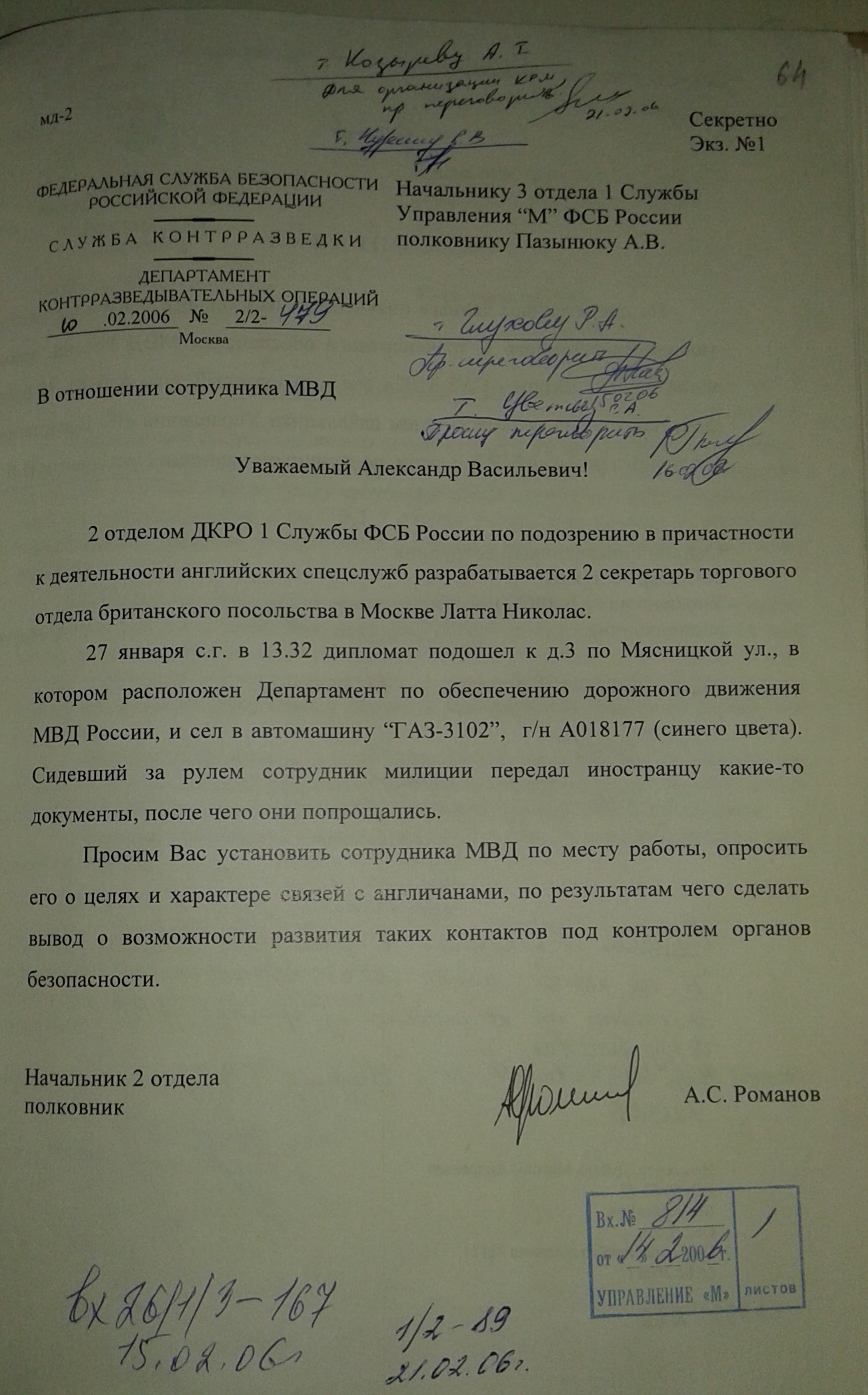
In deep secrecy, the search began for an employee of the Ministry of Internal Affairs, who was assigned the official Volga. However, due to the working confusion in the special garage of the Ministry of Internal Affairs, this was very difficult to do. As it turned out, the car was previously used by the deputy head of DepUr, Valery Nesterov, but he was already at the stage of dismissal. Then the "Volga" moved into the category of "family", and other employees took it – mainly for trips to markets, shops or country cottages. With great difficulty, the drivers were identified: they turned out to be civilian employees Vladimir Belenkov and Alexander Istratov. With both conducted secret conversations.
“During the conversation, Belenkov, presumably due to the interest shown by the security agencies, behaved a little stiffly. At the same time, the intonation and content of the answers given by him to the questions of the security officer allow us to conclude that Belenkov understands the tasks facing the security agencies and the possible onset of negative consequences for him in the event of a biased and incomplete answer. As a result of the conversation with Belenkov, an agreement was reached to keep the conversation with him secret. In the event of questions from superiors or colleagues, Belenkov was instructed by the operative how to answer them, ”the officer of the M department of the FSB noted in the report.
At the same time, the second driver, Istratov, was also interviewed:
“During the survey, Istratov indicated that he had no relatives abroad. However, in the period from spring 1996 to March 1997, under a contract from the Zagrangaz enterprise, he worked as a driver in Thessaloniki (Greece). Istratov said that he had no acquaintances among British diplomats and had not given any packages to foreigners.
Meanwhile, both drivers said that recently the deputy head of the Department “R” of the DepUR of the Ministry of Internal Affairs, Elena Zarembinskaya, had often used the car. She was placed under surveillance, and her phones were wiretapped. However, no compromising data was found on Zarembinsky, and she herself swore to the FSB that she had never worked for British intelligence. The search for the “mole” in the Ministry of Internal Affairs has reached a dead end.
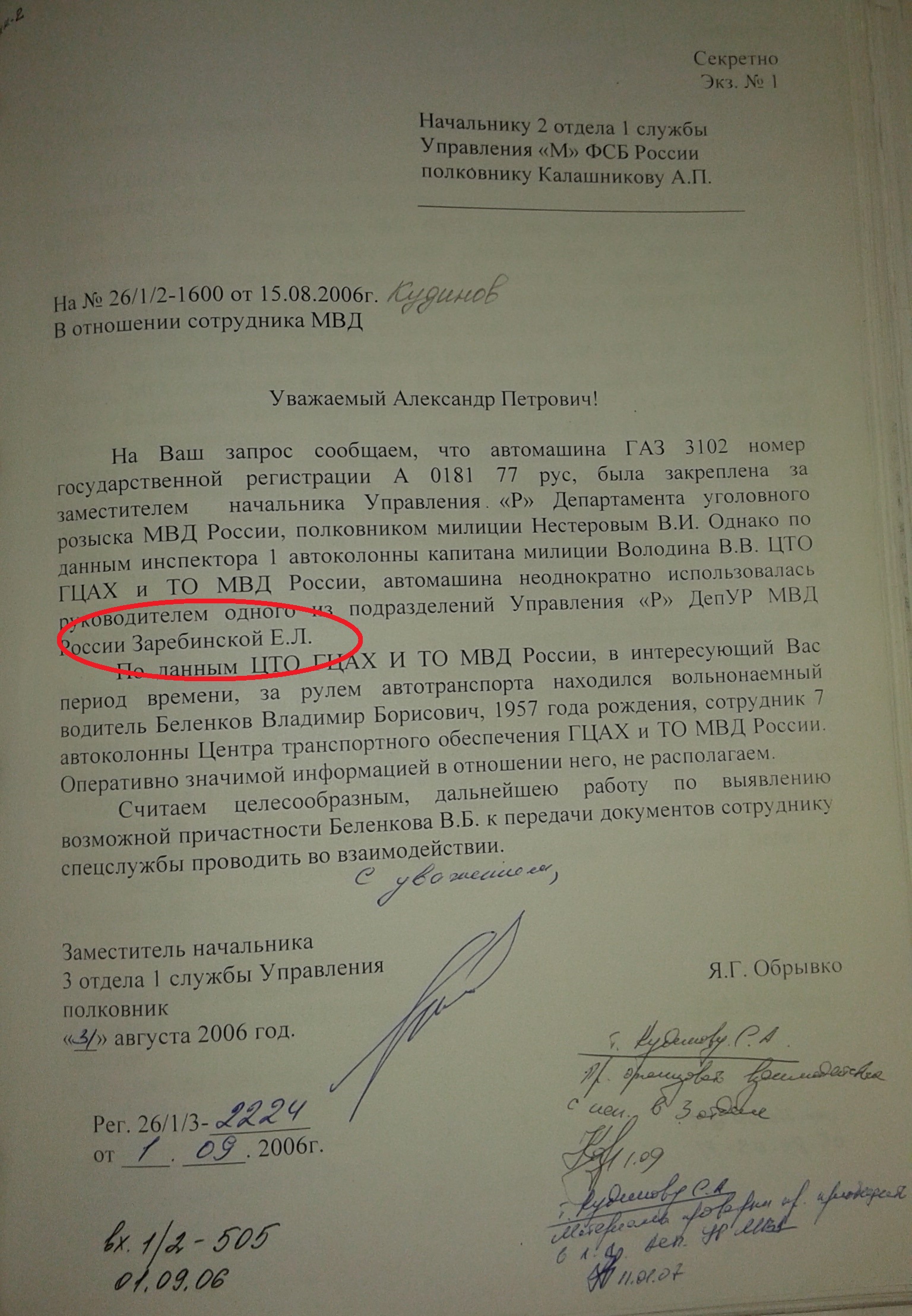
However, for Zarembinskaya, the story did not end there: she was deprived of access to secrecy and was transferred from the DepUR of the Ministry of Internal Affairs to the Federal Penitentiary Service, where she took a secondary position as head of the Department for Organizing the Execution of Punishments Not Related to Deprivation of Liberty. But even there, Zarembinskaya did not stay long: in 2013, her son Sergei Grigorchuk, as well as a fighter from the special forces detachment of the Federal Penitentiary Service Roman Zhigailo, organized a marijuana plantation in a garden plot in the Moscow region. And earlier her son had already been detained with heroin. It was not possible to hush up the scandal, and both drug dealers were sentenced to 10 years in prison. And soon, by Putin's decree No. 552, Zarembinsky was dismissed.
Now Zarembinskaya sits in the leadership of the public organization "Officers of Russia", known for its active support of Russia's aggression against Ukraine and initiatives to rename Volgograd to Stalingrad. So, recently, “Officers of Russia” presented a mercenary from Serbia, Dejan Beric, who is fighting in the DPR, with gratitude for “participation in the NVO”, and Zarembinsky presented him with a banner: “You are a real hero and an example to follow for the younger generation,” with a tremor in her voice she declared.

As for the diplomat Nicholas Latta, he spent three more years in Moscow, and after his departure he worked as an adviser to the British Embassy in Libya and Iraq. Now Latta is engaged in energy projects in South Africa. The Insider sent questions to the diplomat via WhatsApp, asking about that meeting on Myasnitskaya Street and what kind of papers he gave to the driver of the police Volga. As can be seen from the messenger, Latta read the questions, but did not answer. It cannot be ruled out that the Englishman really serves in intelligence, and the FSB missed a spy in the ranks of the Ministry of Internal Affairs.
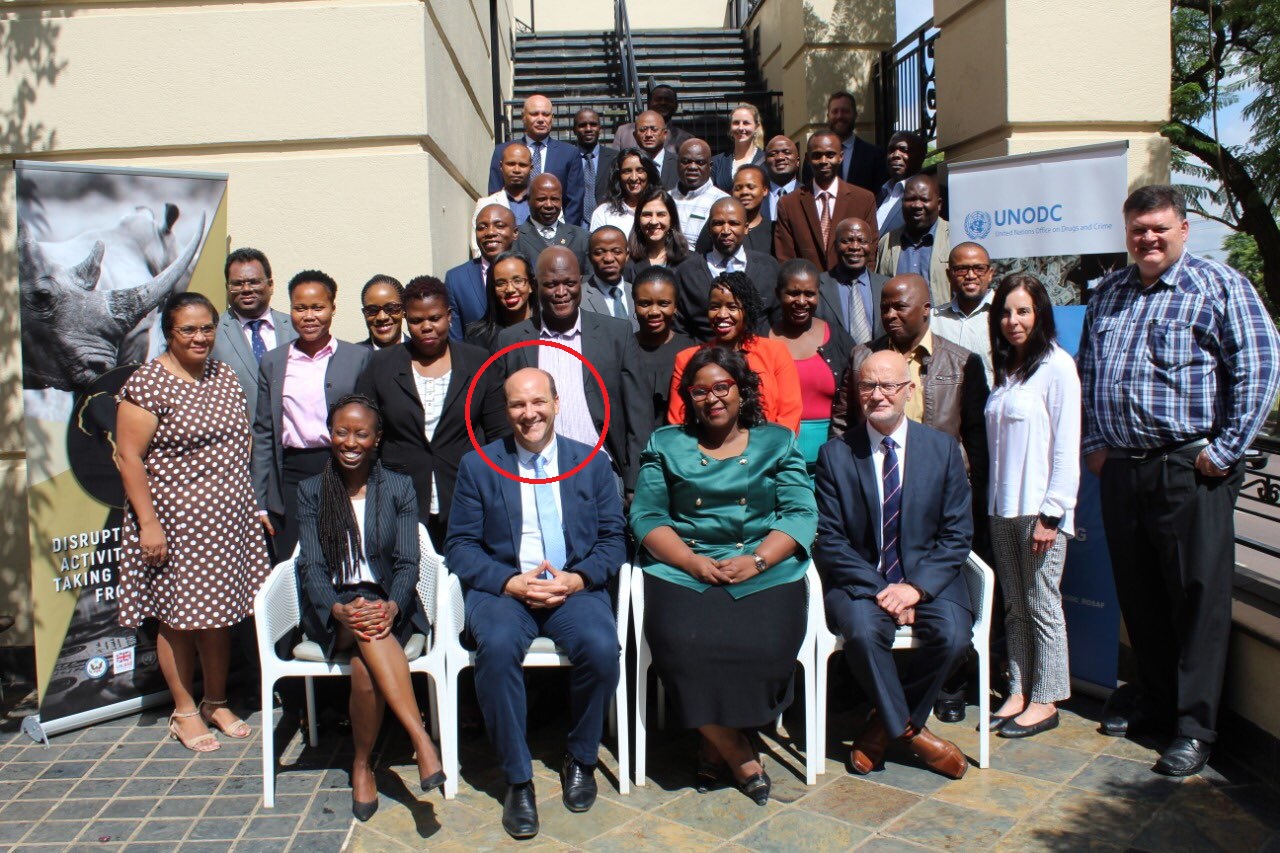
Cold heart and sticky hands
In addition to Western embassies, the DKRO FSB oversees the Russian Foreign Ministry and other foreign economic organizations. Employees of the department are seconded to most departments of the Ministry of Foreign Affairs and the central office of Rossotrudnichestvo.
In particular, the department "patronizes" private security companies that guard the buildings of the Ministry of Foreign Affairs and foreign missions. In 2017, the CSS of the FSB detained two colonels from the 13th department of the DKRO: Alexei Kuternin and Alexei Kostenkov, who extorted 1.3 million rubles from the owner of the private security company Detachment-1, Gleb Snitserov. According to investigators, the FSB agents promised the Chopovite to assist in concluding a contract for the protection of the building of the Main Directorate for Servicing the Diplomatic Corps (GlavUpDK) of the Russian Foreign Ministry. At the trial, the victim Snitcerov stated that he had no claims against the counterintelligence officers. Taking into account the positive characteristics from the place of service, Kuternin was sentenced to two years in prison, and Kostenkov to one year and three months.
Since 2019, the DKRO FSB has been headed by the former head of the FSB FSB Alexei Komkov. As a source at The Insider in Lubyanka told The Insider, “Aleksey Viktorovich was given the task of cleaning up the bribe-takers and corrupt officials in the DKRO, since there was nowhere else to endure. He did well, but after the start of the military operation in Ukraine, the work was almost completely curtailed.”


